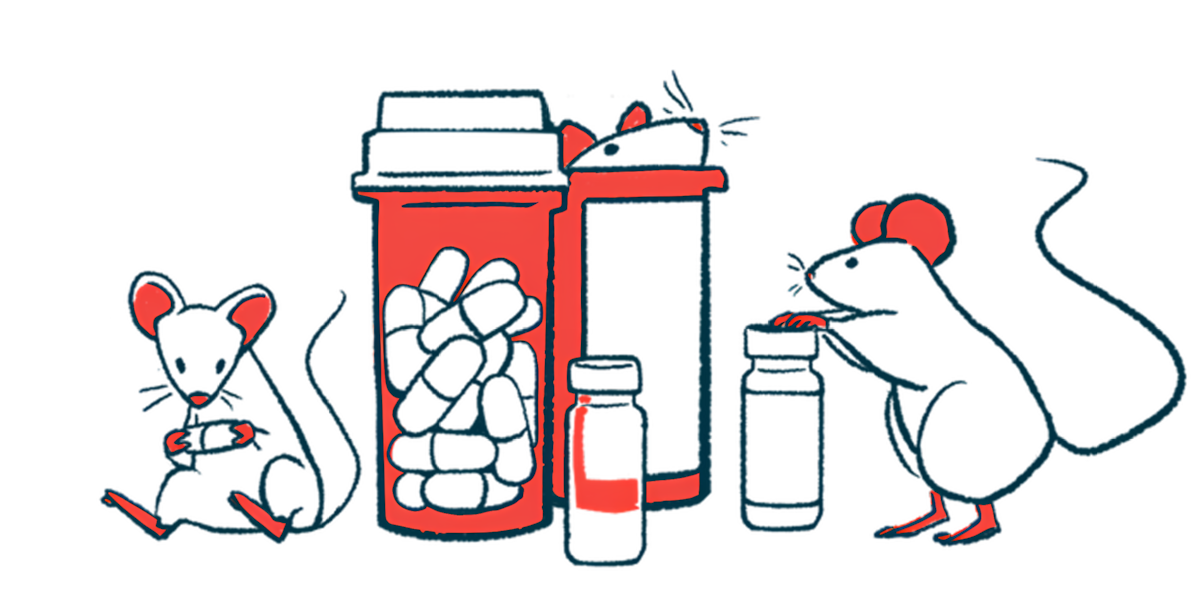Medication for arthritis may help treat MG, early study suggests
Less muscle weakness, weight loss seen with tofacitinib use in rat model
Written by |

Tofacitinib, an approved medication for some types of inflammatory arthritis and inflammatory bowel disease, may also help treat myasthenia gravis (MG), a new study done in an animal model and cell samples suggests.
Treatment with tofacitinib was found to ease muscle weakness and weight loss in a rat model of MG. In immune cells from patients, treated in a laboratory, the repurposed medication was shown to increase the proportion of anti-inflammatory cells.
According to the researchers, from two universities in China, tofacitinib may work to modulate the activity of specific immune cells that play a role in the rare neuromuscular disease, “suggesting its potential as a therapeutic candidate for MG.”
Their study, “The JAK1/3 Inhibitor Tofacitinib Regulates Th Cell Profiles and Humoral Immune Responses in Myasthenia Gravis,” was published in the journal Muscle and Nerve. The work was supported by a grant from the National Natural Science Foundation of China.
Testing an arthritis medication known to reduce inflammation for MG
An autoimmune disease, MG is caused by self-reactive antibodies that disrupt the communication between nerve and muscle cells, leading to symptoms of muscle weakness and fatigue.
Tofacitinib is an oral anti-inflammatory medication sold under the brand name . It’s approved as a treatment for several types of inflammatory arthritis, as well as ulcerative colitis, a type of inflammatory bowel disease. The therapy works by blocking the activity of JAK, or Janus kinase, enzymes, which play a key role in inflammation and immune cell function.
According to the researchers, because overactive immune cells drive MG, tofacitinib might theoretically be useful as a treatment. However, the medication has not been studied much in MG.
Now, a team led by scientists from The First Affiliated Hospital of Zhengzhou University and Tongji Hospital of Huazhong University of Science and Technology conducted a series of tests to examine the potential utility of tofacitinib in MG.
First, the team tested the therapy in a rat model of the disease. They found that rats given tofacitinib experienced less weight loss and muscle weakness, without notable safety issues.
“These findings suggest that tofacitinib markedly alleviates the severity of [experimentally-induced MG] in rats and is well-tolerated even at high doses,” the researchers wrote.
The team then looked at how tofacitinib treatment impacted immune cells. In rats with experimentally-induced MG, pro-inflammatory immune cells called Th1 and Th17 cells are present at high levels. Anti-inflammatory cells called regulatory T-cells, or Tregs, conversely are present at low levels. Tofacitinib reversed these abnormalities, reducing the number of pro-inflammatory Th1 and Th17 cells while boosting the number of anti-inflammatory Tregs.
Tofacitinib treatment also markedly reduced the number of antibody-producing memory B-cells. In this rat model, the animals were induced to produce antibodies targeting acetylcholine receptor (AChR), the most common type of MG-driving antibody. Consistent with the reduction in B-cells, levels of anti-AChR antibodies also dropped with tofacitinib treatment.
These findings suggest that tofacitinib markedly alleviates the severity of [experimentally-induced MG] in rats and is well-tolerated even at high doses.
Following the experiments in animals, the researchers tested the effects of tofacitinib on immune cells collected from 15 patients with MG. Consistent with the animal data, these results indicated that tofacitinib reduced the levels of anti-AChR antibodies, as well as the proportion of pro-inflammatory Th1 cells, while increasing the proportion of anti-inflammatory Tregs.
Unlike the experiments conducted in rats, in tests done with cells in dishes, tofacitinib did not affect the proportion of Th17 cells. The researchers speculated that this could be because in living animals, tofacitinib might impact Th17 cells indirectly by modulating the levels of signaling molecules made by cells that aren’t present in cells cultured in dishes.
Overall, the data suggest that tofacitinib “may provide an additional treatment option for patients with inadequate responses to current therapies, potentially complementing the evolving landscape of MG therapeutics,” the researchers wrote. The team stressed, however, that additional studies and clinical trials will be needed to evaluate the safety and efficacy of tofacitinib in people with MG.







Leave a comment
Fill in the required fields to post. Your email address will not be published.